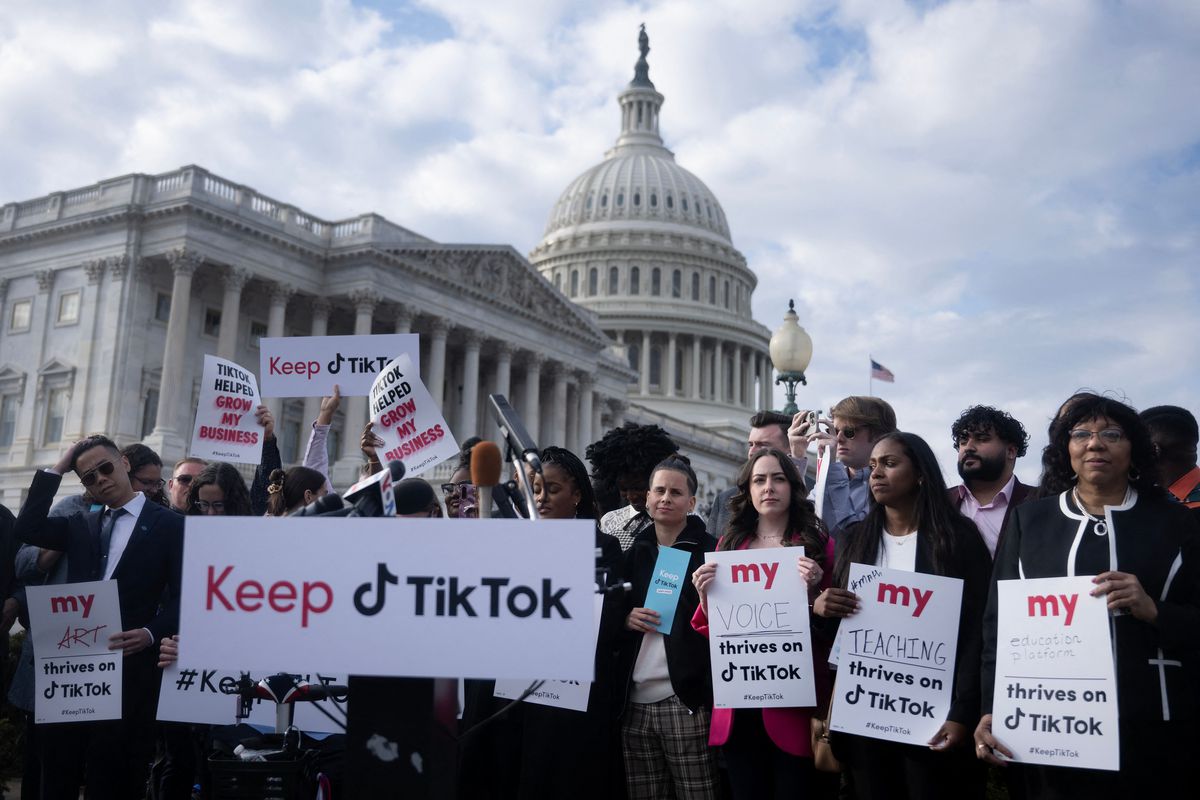Zhou Xiaoming, Former Deputy Permanent Representative of China’s Mission to the UN Office in Geneva
Dec 27, 2024
Beijing has put the United States on notice that China will fight to safeguard its interests. Like a giant panda, which will attack someone who pokes it in the eye, China retaliated swiftly after the Biden administration tightened the screws on technology exports. Donald Trump, who has threatened a new trade war, should take careful note.
Tao Wenzhao, Honorary Member of the Chinese Academy of Social Sciences; Fellow, CASS Institute of American Studies
Dec 24, 2024
There are no winners in war — either shooting wars or technology wars. The scope of the new agreement between China and the United States is narrower after revisions, yet it’s still good for both sides because it preserves contacts and exchanges at many levels.

Dec 20, 2024
Daniel Russel is vice-president for international security and diplomacy at the Asia Society Policy Institute. He previously served as special assistant to U.S. President Barack Obama and Assistant Secretary of State for East Asian and Pacific affairs at the U.S. State Department from 2013 to 2017. He was a major figure in the Obama administration's "pivot towards Asia" strategy. In a recent interview with James Chau of China-US Focus in Tokyo, Daniel Russel shares his concerns on U.S.-China rivalry in new technologies and its impact on bilateral relations and the globe as well.
Li Zheng, Assistant Research Processor, China Institutes of Contemporary International Relations
Jul 19, 2024
The two sides need to actively explore new models of cooperation with an open attitude to realize development together. How they balance competition and cooperation will not only affect their own relations but also the direction of the world.

Doug Bandow, Senior Fellow, Cato Institute
Apr 19, 2024
The proposed legislation to ban TikTok in the United States reflects unfounded fears of Chinese influence and undermines principles of free speech and digital competition. While concerns over data privacy and manipulation exist, banning TikTok is an overreach that could harm American businesses and international reputation without addressing more pressing issues.
Harvey Dzodin, Senior Fellow, Center for China and Globalization
Mar 27, 2024
The US was shocked out of its 20th century global isolationism on December 7, 1941 when Japan attacked Pearl Harbor. Ever since that era when a dirt-poor, war-torn China was still being derided as the “sick man of Asia”, the US has kept trying to maintain its lock on advanced technological global hegemony, doing whatever it takes to be #1, albeit with declining success.

Yu Xiang, Senior Fellow, China Construction Bank Research Institute
Mar 25, 2024
Security threat worries are unfounded. A ban of the platform would only undermine the confidence of international investors and pose significant risks to global economic development. Investors should pay close attention to these risks when making investment decisions.
Chen Jimin, Guest Researcher, Center for Peace and Development Studies, China Association for International Friendly Contact
Mar 25, 2024
The United States and China have opened communication channels in many touchy areas. But they have yet to do so in the field of technology competition, which has risen to a level of sensitivity on par with Taiwan and the South China Sea. It is urgent for the two nations to create such a mechanism now.
Philip Cunningham, Independent Scholar
Mar 22, 2024
What’s the future of TikTok in the U.S.? American politics tend to obscure the nuanced technological issues at hand, and policymakers should shift towards regulating social media platforms as public utilities rather than focusing solely on ownership disputes.

Zhao Minghao, Professor, Institute of International Studies at Fudan University, and China Forum Expert
Feb 29, 2024
The United States seeks to widen the technology gap with China as much as possible and thus will create more barriers for Chinese research and development. It may even try to push back some of the technological advancements China has made. China needs to prepare for greater pressure.